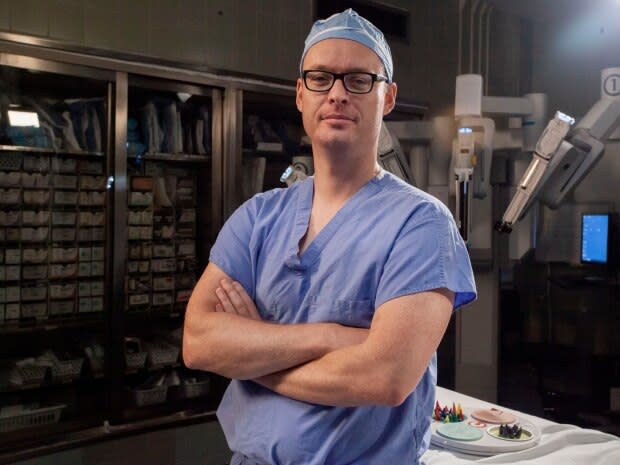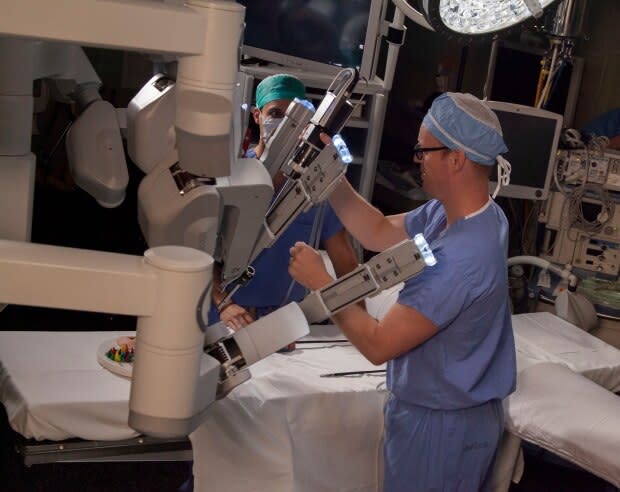Dartmouth man is cancer-free thanks to surgeon, robot
Barrie MacFarlane said he was amazed at how quickly he was back on his feet after his cancer surgeon, with the help of a robot, removed his prostate last February.
"I went back to recovery at supper hour and went home very early the next day," said the 72-year-old Dartmouth man.
The surgery was only the second in Nova Scotia with robot assistance.
"I was sent home with a prescription for pain medication that I had filled, just in case, but I didn't open the bottle," said MacFarlane. "I didn't need it.
"I had no pain, no complications, no side-effects. I was able to walk that day, took the dog for a walk."
88 robot-assisted surgeries
There have been 88 robot-assisted surgeries at the QEII Health Sciences Centre since the hospital started using the high-tech equipment last February.
Dr. Ross Mason, the urologist and cancer surgeon who operated on MacFarlane, said his patient's experience was not unusual.

Using the robot allowed Mason to remove the prostate without using a scalpel.
"Instead of having to do a traditional large incision you can get away with putting small tiny incisions on the belly, so they really get away with only having essentially Band-Aids on it," said Mason.
"There's less pain associated with it. There's less blood loss associated with it and they recover and go home quicker. Those are huge advantages in the short term."
Although robot-assisted surgeries result in shorter hospitals stays and fewer complications, which saves money, the equipment, training and ongoing maintenance is expensive.
Expensive equipment
The QEII Hospital Foundation is picking up the $8.1-million cost of the program for five years.
Fundraising is ongoing but the foundation has already raised $5.3 million, in large part thanks to a $3-million donation from members of the Sobey family.

Dr. Greg Baillie, chief of urology at the hospital, is hoping the province will see the value of keeping the program and fund the project once the first five years are up.
He is convinced of the value of robotic surgery.
"We're following our outcomes closely over the next five years," said Baillie. "And I think that putting all that together, and collaborating with other centres, we'll be able to make a good case for … for hopefully getting public funding for this."
MacFarlane is convinced.
"I believe it that it merits closer consideration by government because, for me, it required less nursing time, less in-patient time, less followup and there are cost factors involved in all those things."
He said he is glad to be "cancer-free."
MORE TOP STORIES


